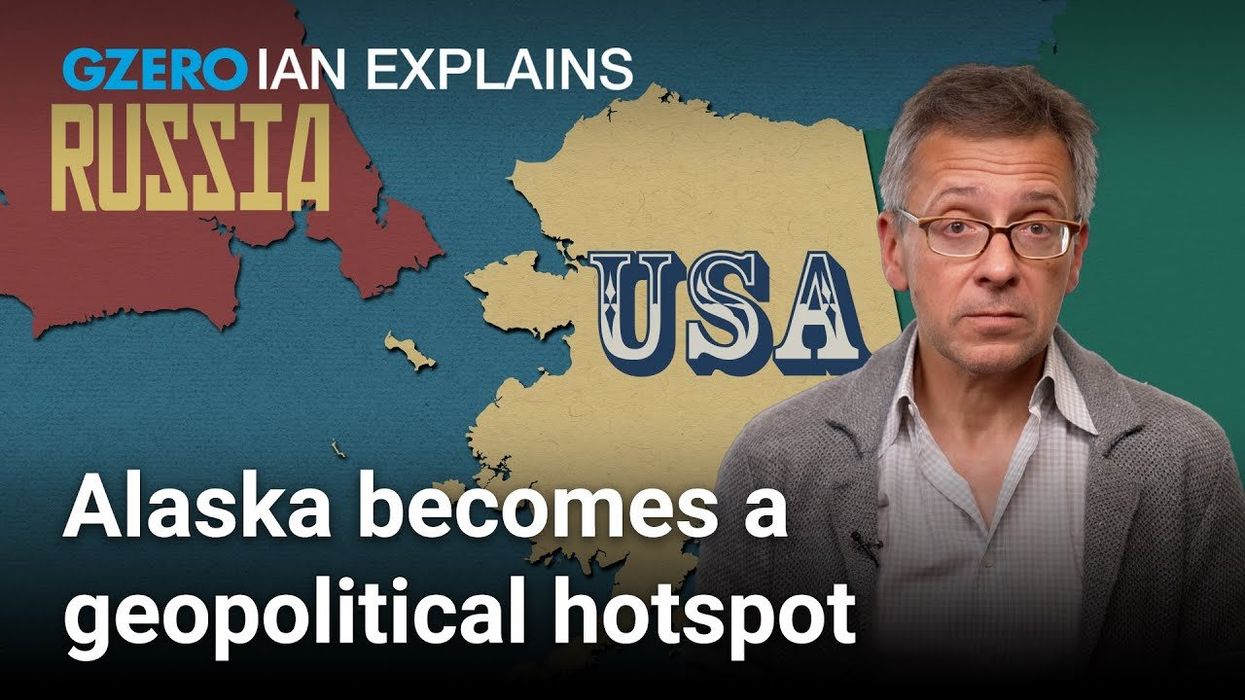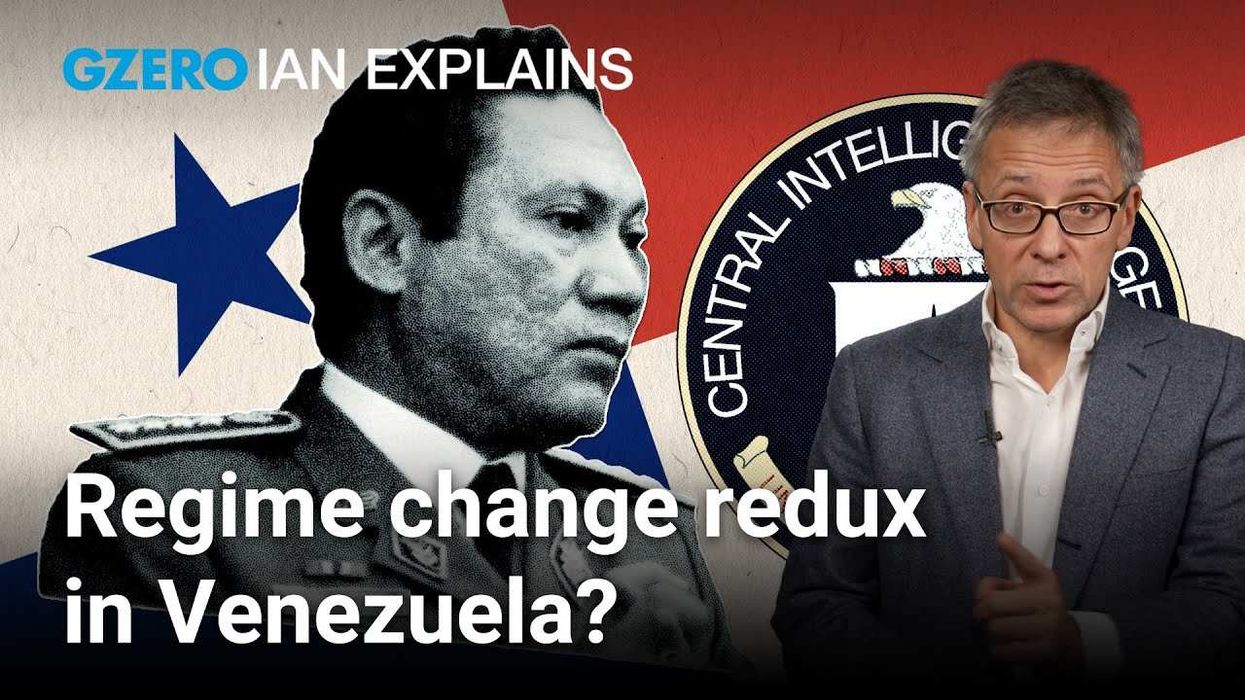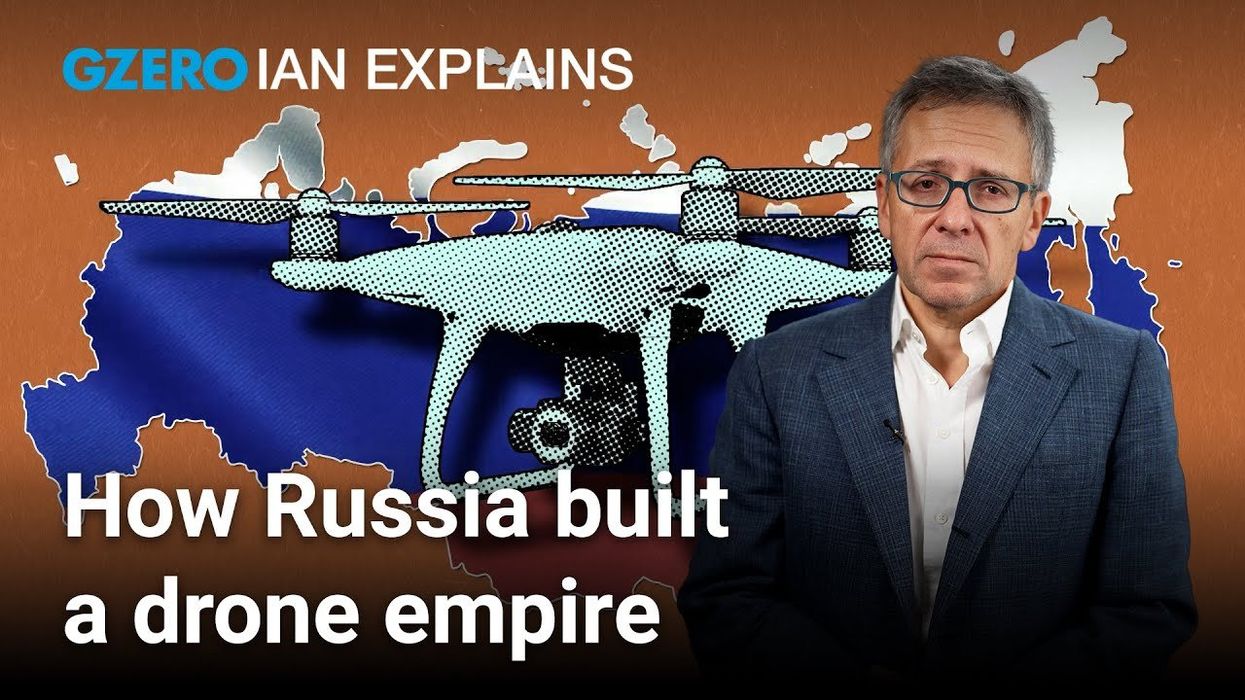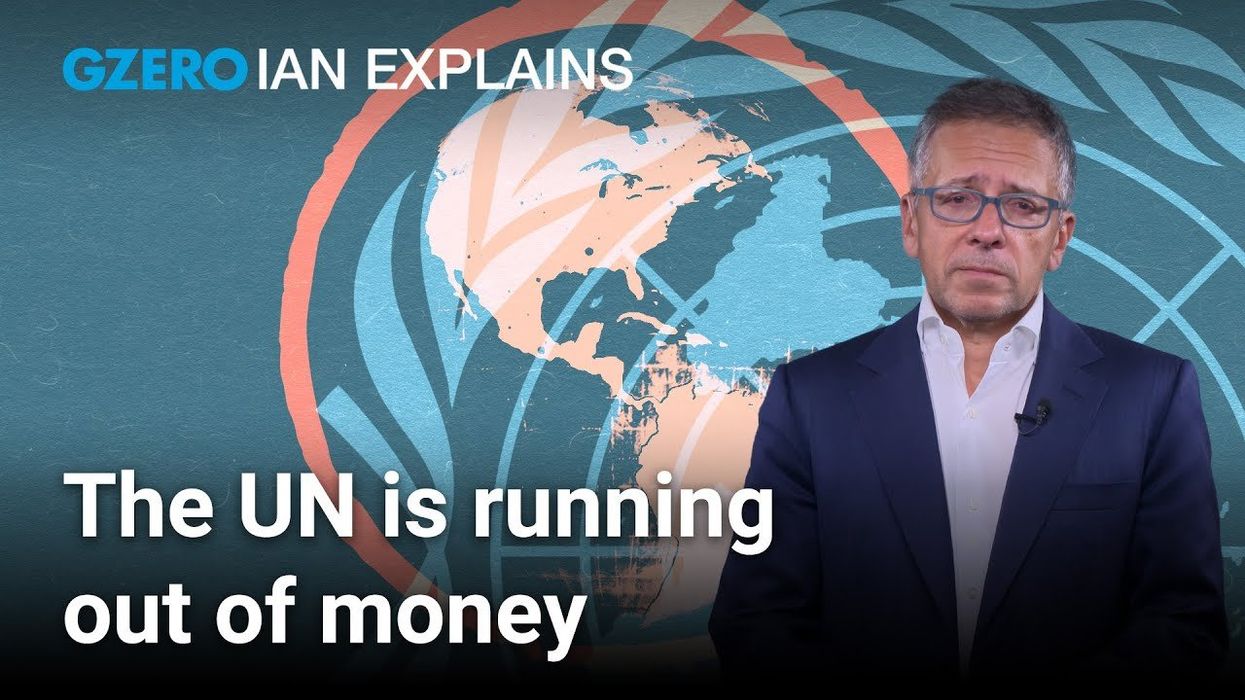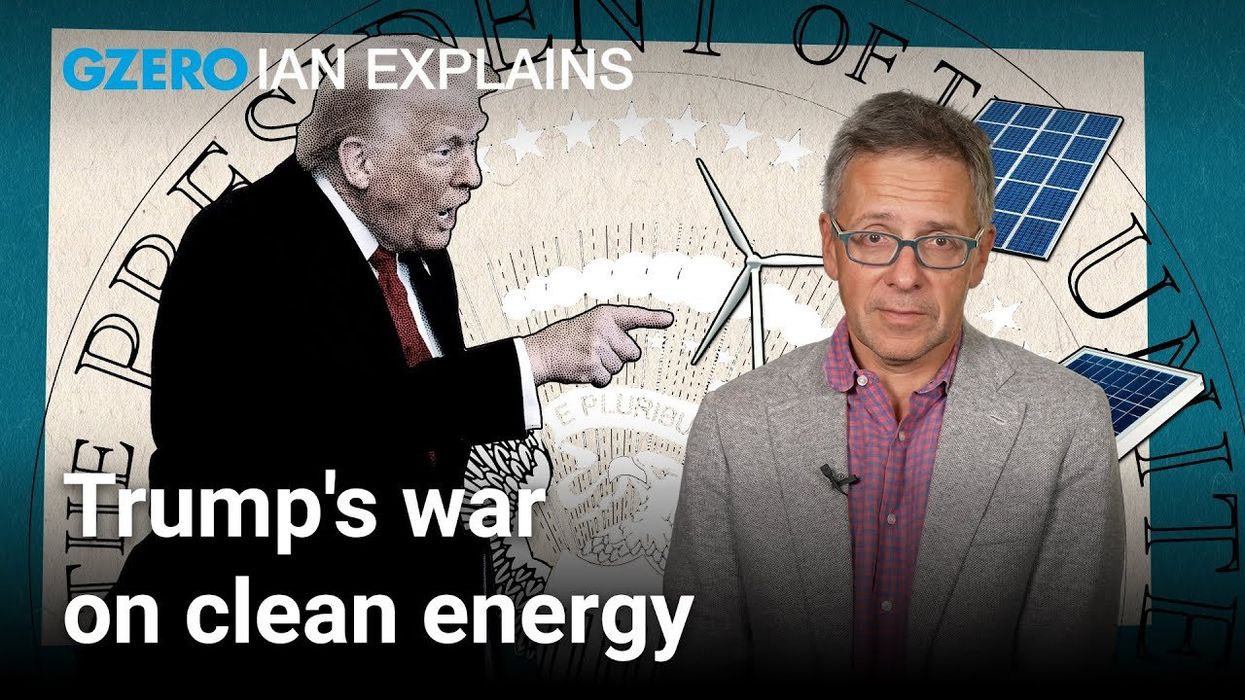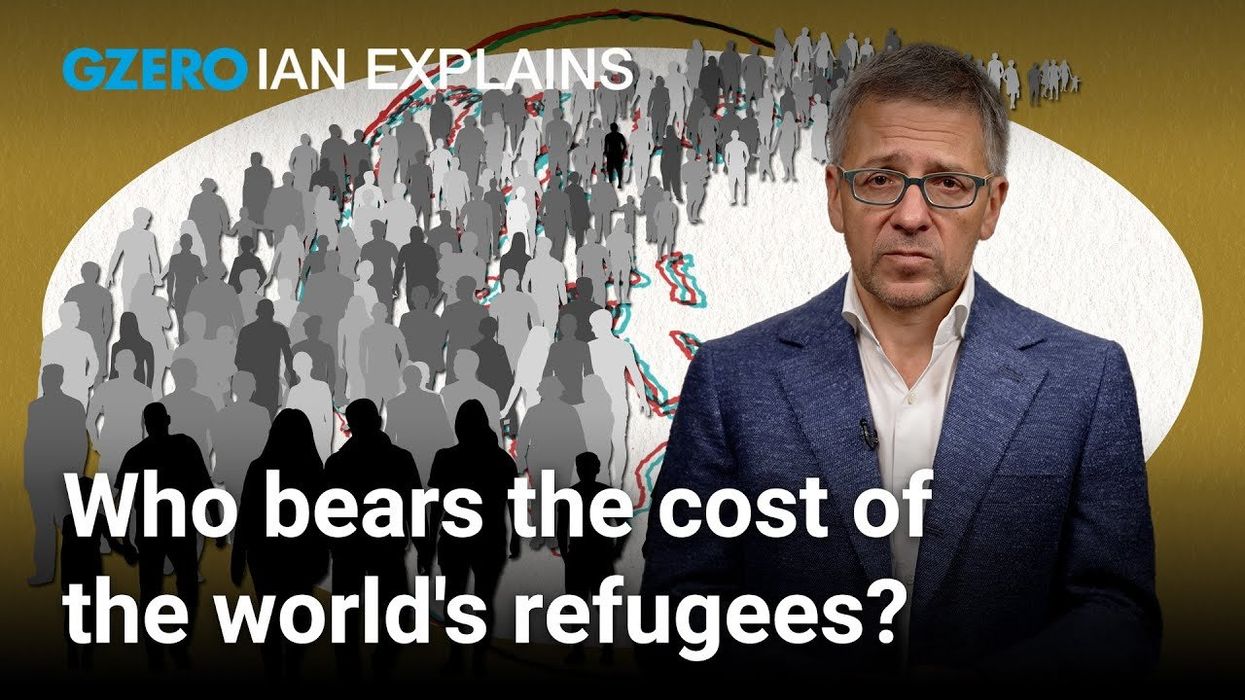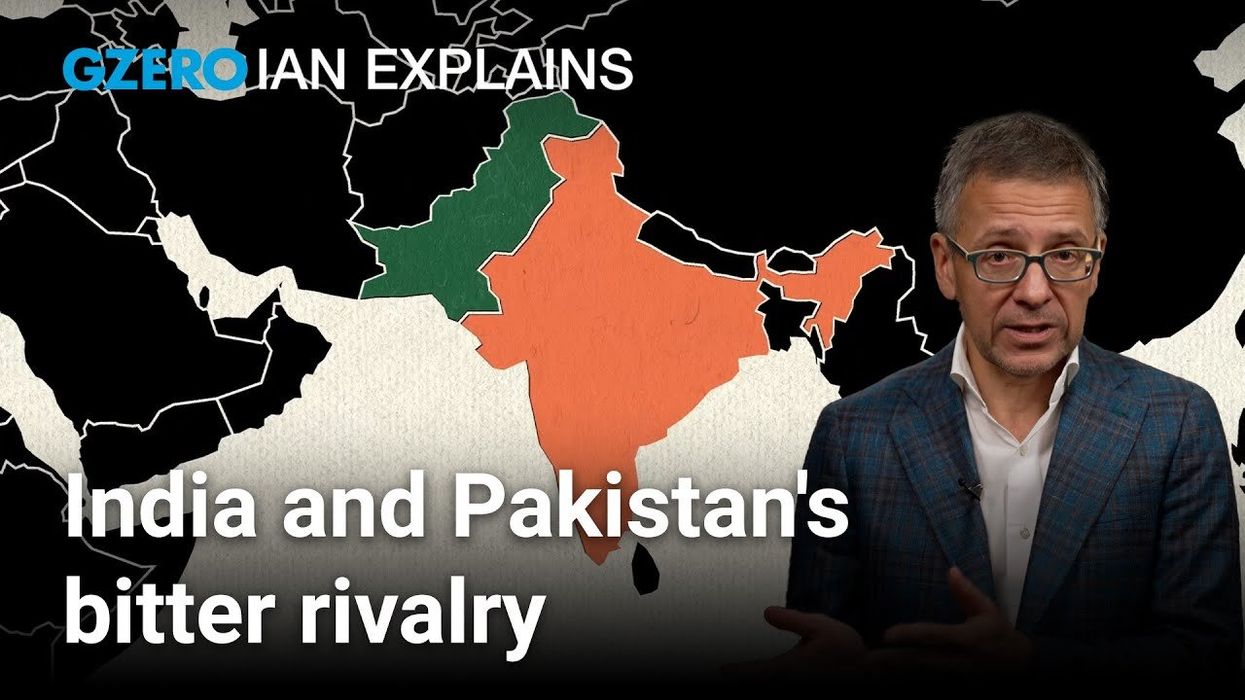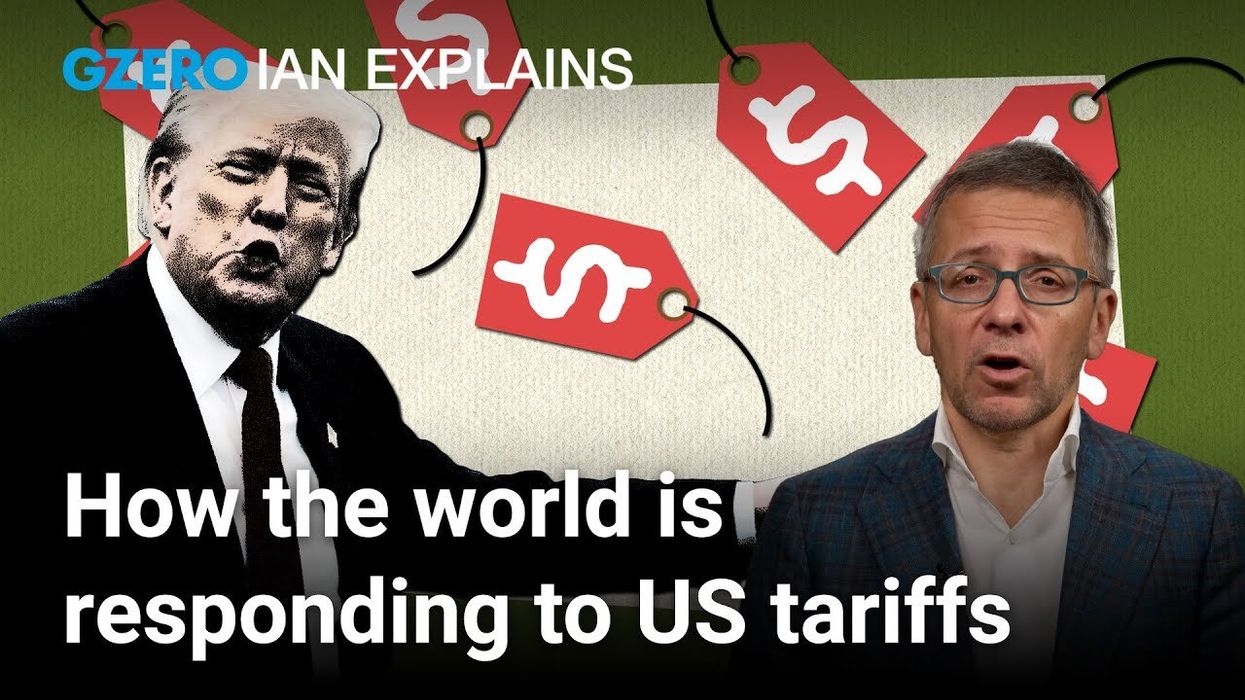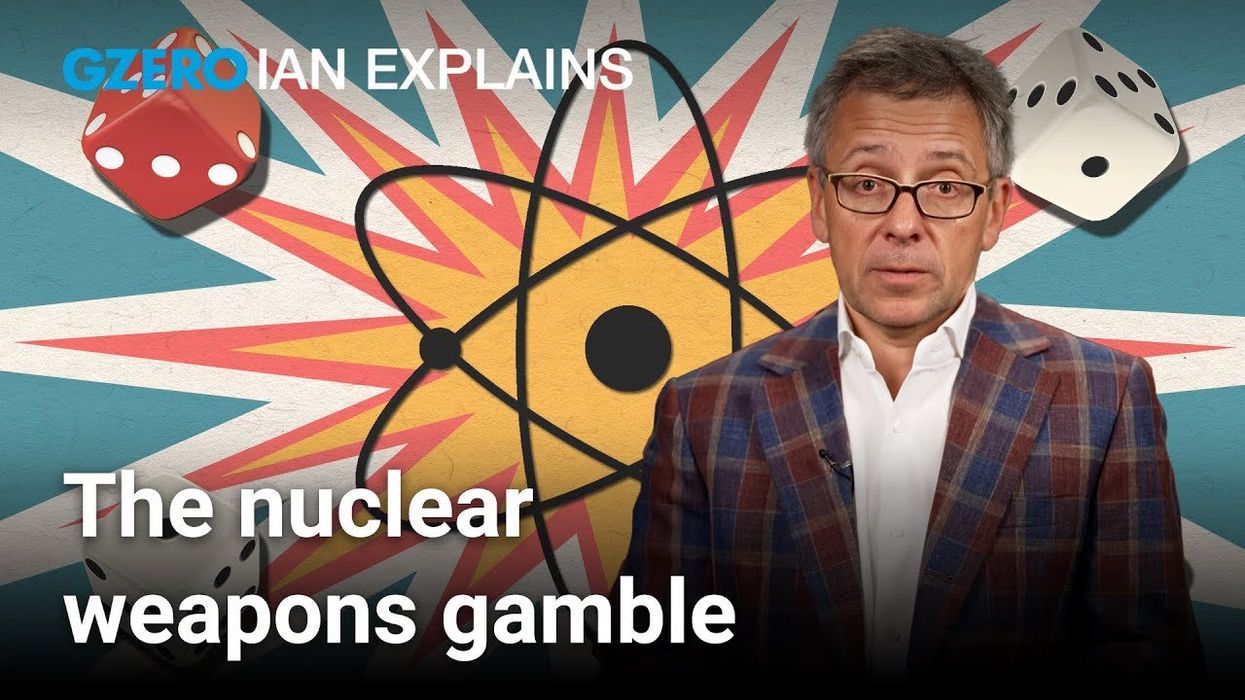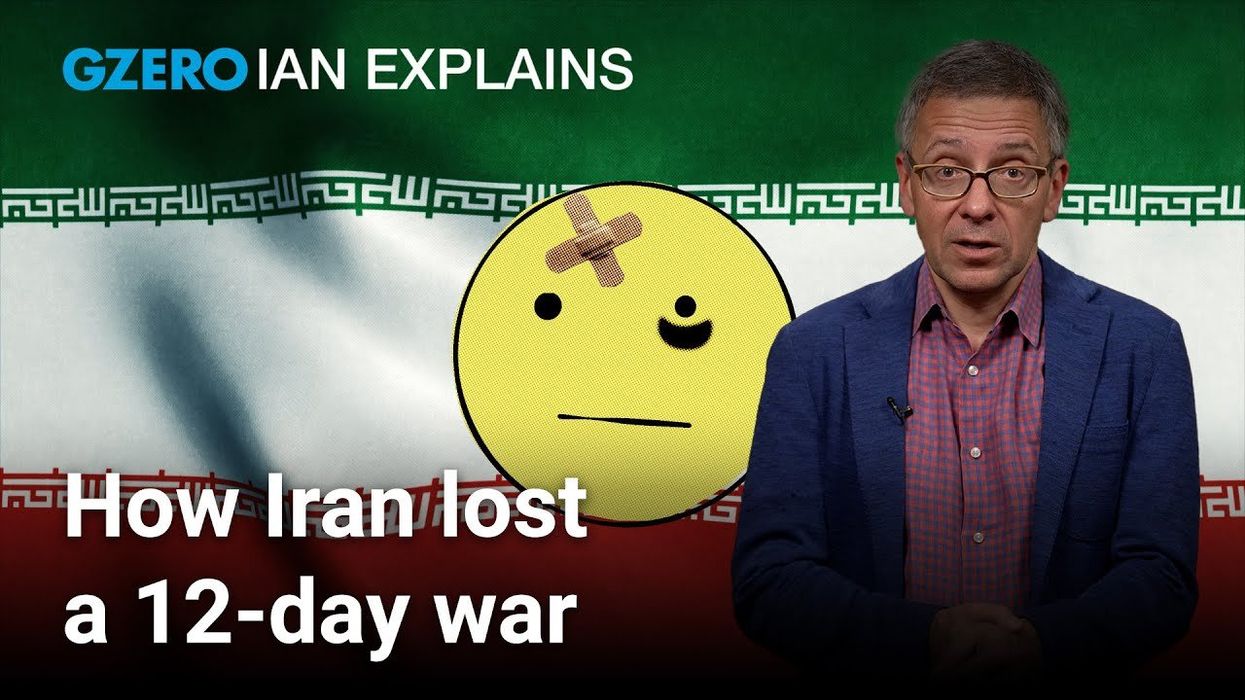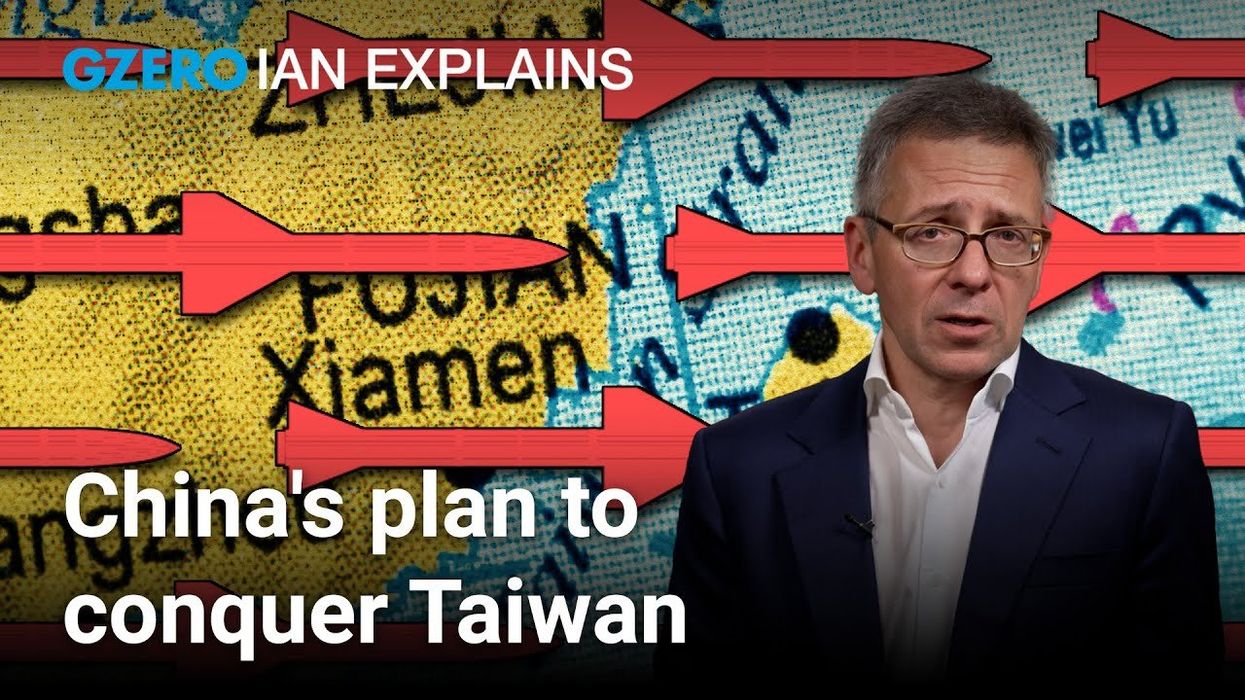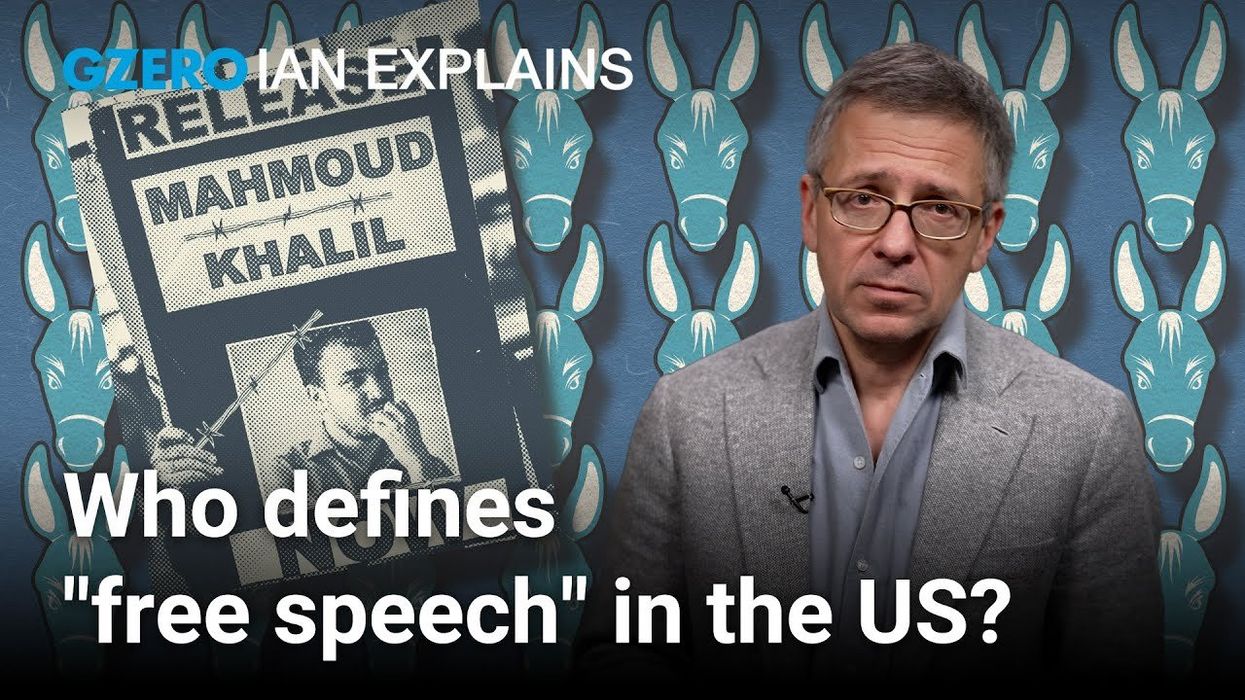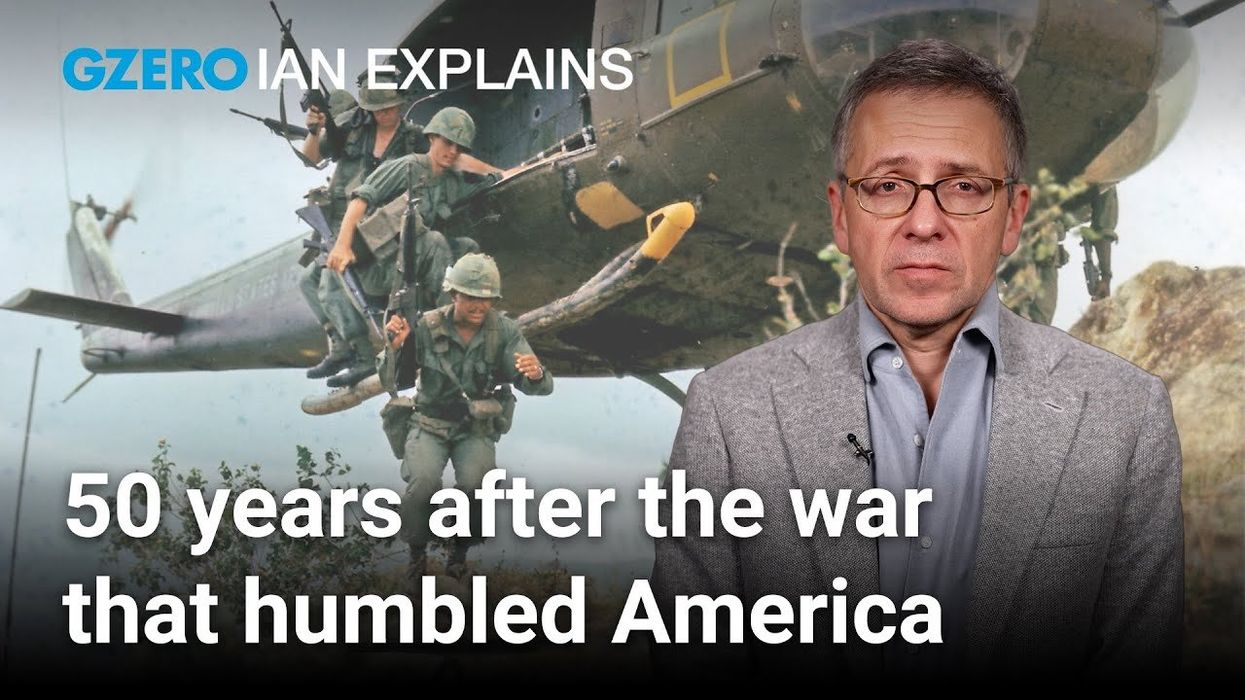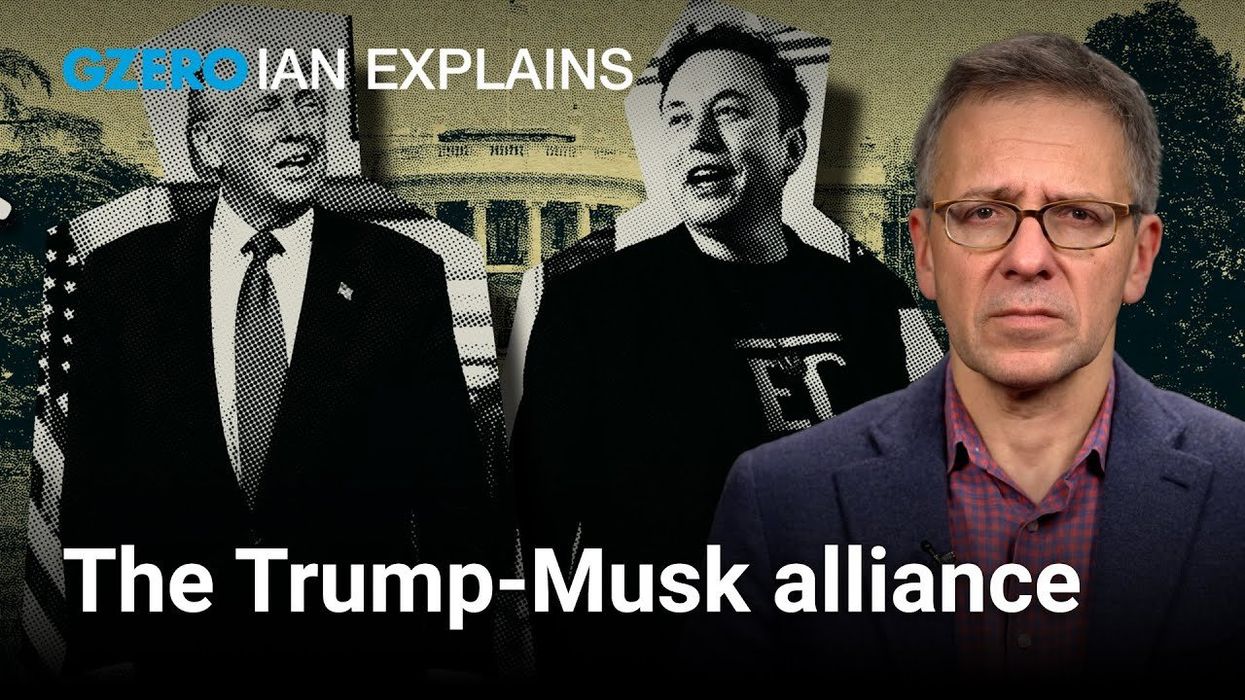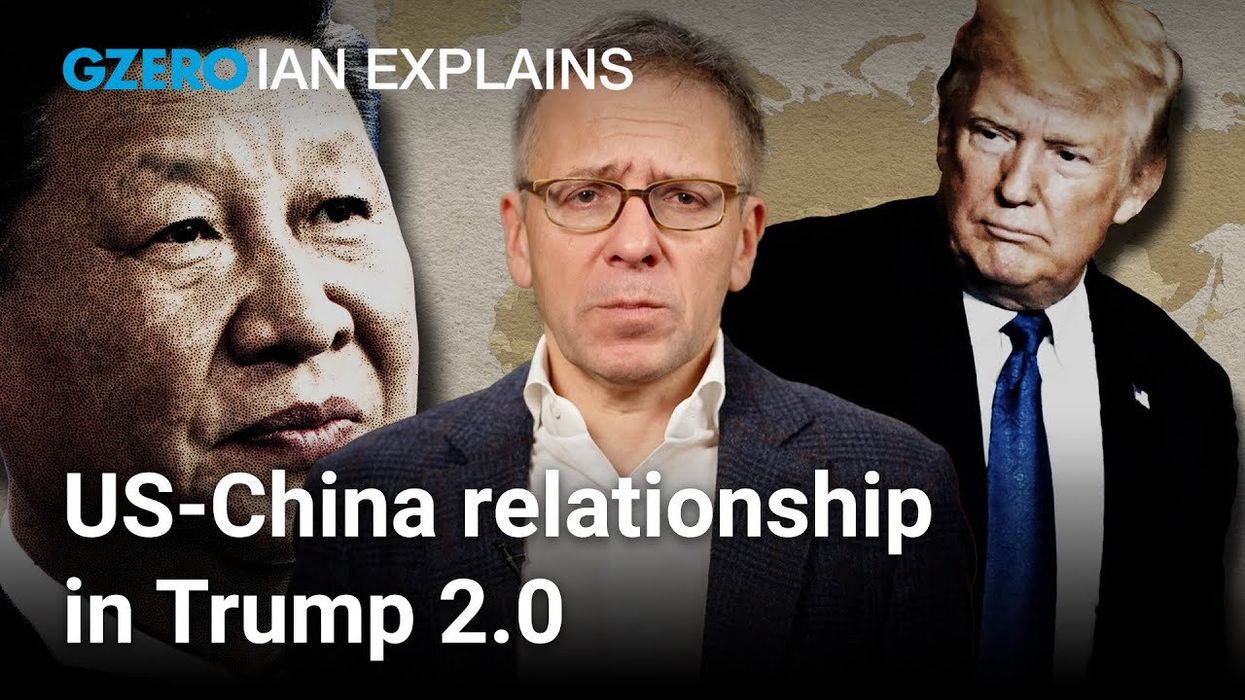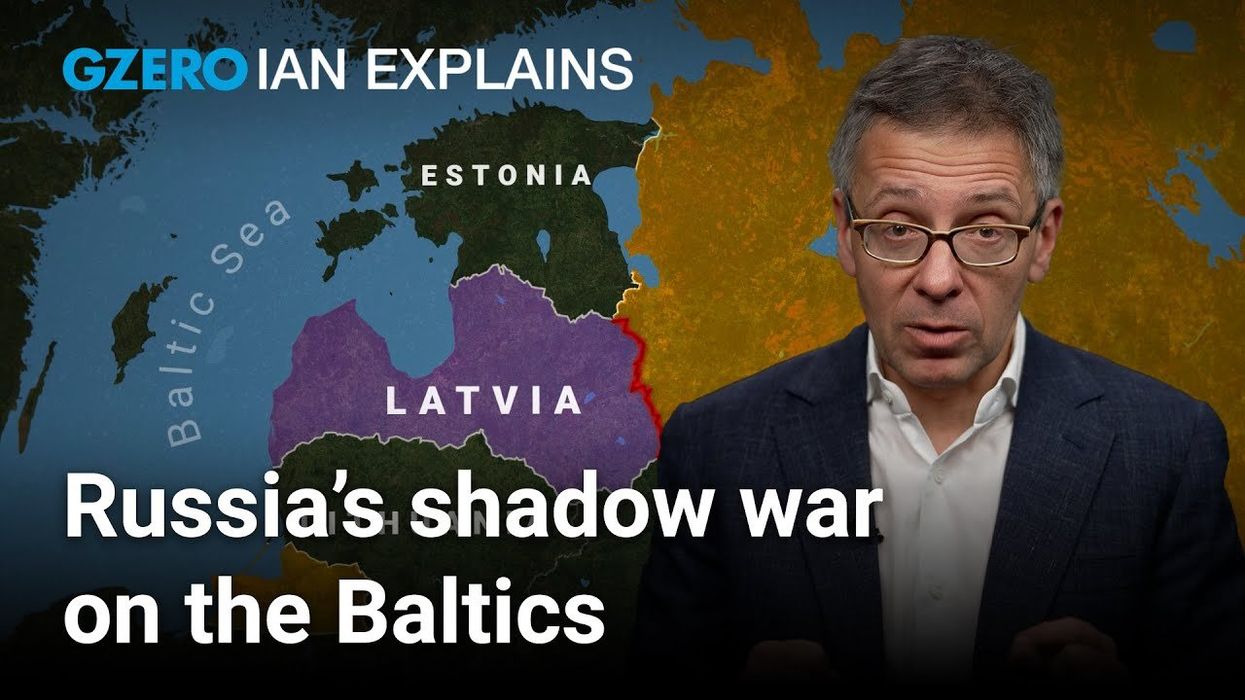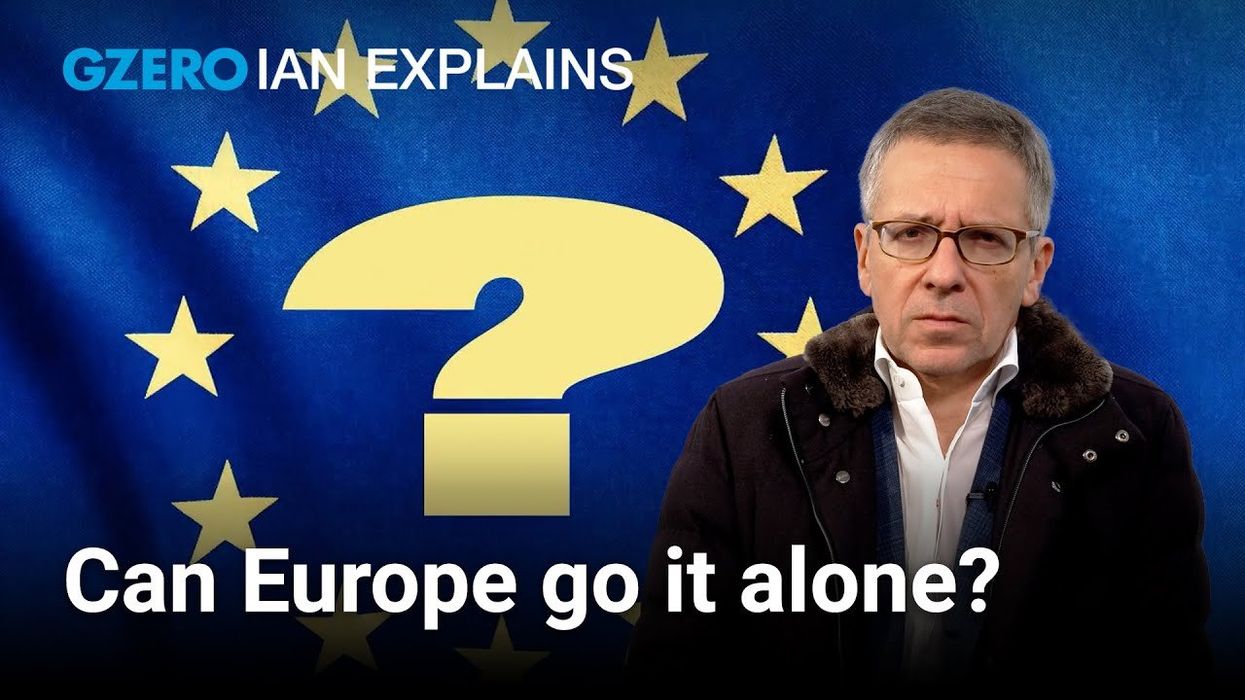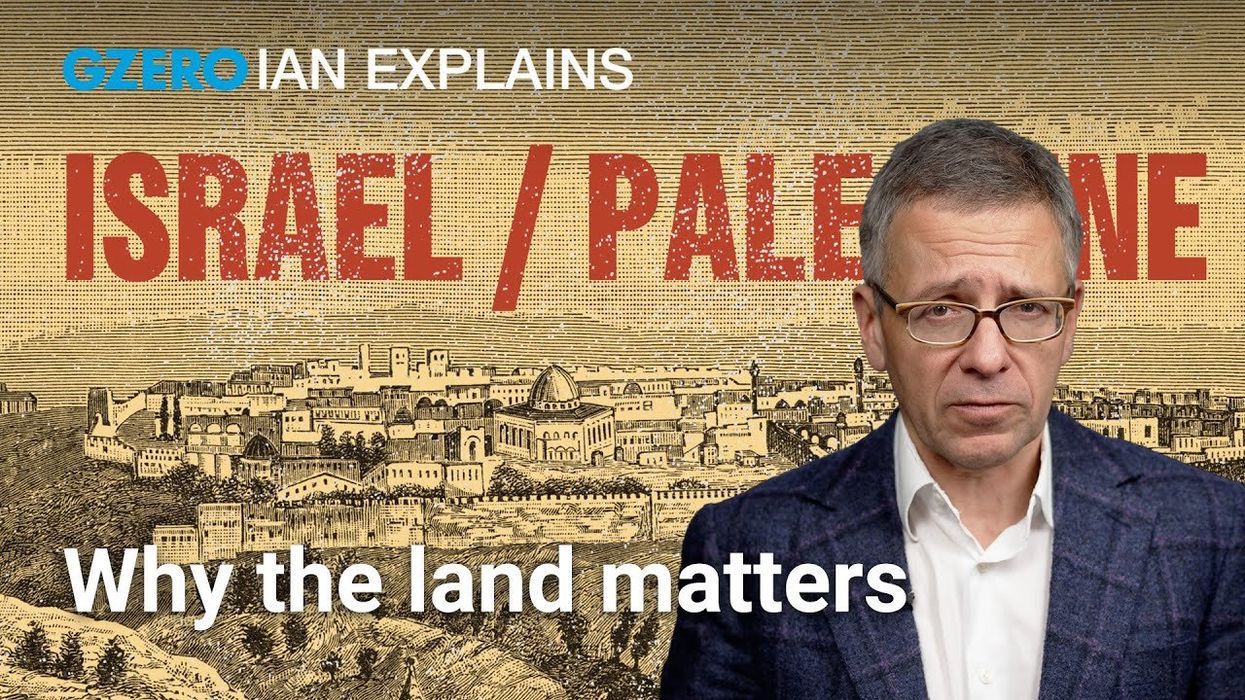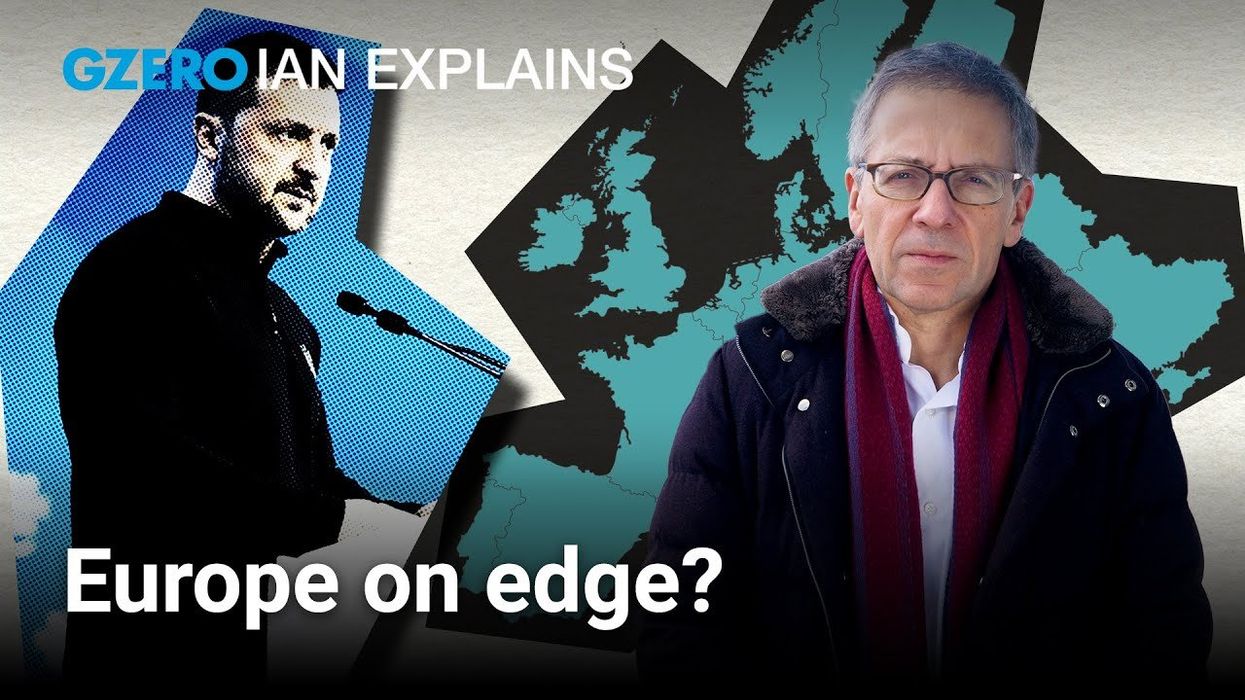VIDEOSGZERO World with Ian BremmerQuick TakePUPPET REGIMEIan ExplainsGZERO ReportsAsk IanGlobal Stage
Site Navigation
Search
Human content,
AI powered search.
Latest Stories
Start your day right!
Get latest updates and insights delivered to your inbox.
Amid Russia's growing territorial aggression and a fast-warming Arctic, Alaska's physical place in the world has become more geopolitically relevant than ever. Alaska's northern coastline makes the US one of six countries with exclusive economic zones in the Arctic Circle. And while no country owns the North Pole—it isn't even land—it is constantly shifting sea ice, which is going to melt. But as that happens, the Arctic is opening up, and countries are now racing to lay claim to untapped deposits of oil, natural gas, and rare earth minerals, newly accessible shipping routes, and strategic military positions between North America and Eurasia.
Russia is winning by most metrics. The Russian government has more than three dozen polar icebreakers in its fleet, compared to two, not two dozen, two in the United States, giving it a strategic and operational advantage. Russia accounts for nearly half the Arctic population, more than half its coastline, and the Arctic industry. Moscow has spent years building up military outposts in the region as polar ice melts and its northern waters become exposed.
Russia's also increasing cooperation in the region with China, which sees the Arctic as an important part of its strategic economic and environmental interests. China is believed to be exploring a military presence there. NATO countries suspended political-level meetings with Moscow, and all international research projects have been put on hold. Until Arctic states can find a way to work together, rising tensions and a zero-sum game of territorial ambition will give the most remote part of the planet a lot more of our attention.
Watch Ian's interview with Governor Mike Dunleavy on the full episode of GZERO World with Ian Bremmer, the award-winning weekly global affairs series, airing nationwide on US public television stations (check local listings).
New digital episodes of GZERO World are released every Monday on YouTube. Don''t miss an episode: Subscribe to GZERO's YouTube channel and turn on notifications (🔔).
Keep reading...Show less
More from Ian Explains
Ian Explains
Dec 19, 2025
Can we still trust Wikipedia?
December 12, 2025
Will AI replace human workers?
December 05, 2025
Could the US pull another Panama in Venezuela?
November 21, 2025
Is the AI bubble about to burst?
November 14, 2025
What the US can learn from China's infrastructure boom
November 07, 2025
Is the future of AI physical?
October 24, 2025
The state of America's political parties
October 17, 2025
Can Israel become a "super-Sparta?"
October 08, 2025
How Russia overtook Ukraine's drone advantage
September 26, 2025
The UN is running out of cash. Can it reform before it's too late?
September 22, 2025
Will Trump's energy policies set back climate progress?
September 12, 2025
50 years of the war on cancer
September 05, 2025
The broken system behind the refugee crisis
August 22, 2025
Why India and Pakistan can't get along
August 15, 2025
Trump's tariffs are already changing global trade
August 01, 2025
Do nuclear weapons make a country safer?
July 11, 2025
Israel, Iran, and the US went to war. Now what happens?
July 05, 2025
How China would seize Taiwan without firing a shot
June 06, 2025
What is artificial general intelligence?
May 16, 2025
50 Years on, have we learned the Vietnam War's lessons?
April 25, 2025
Will Trump pressure Putin for a Ukraine ceasefire?
April 11, 2025
Will the Trump-Musk relationship last?
March 28, 2025
Did Wall Street get Trump wrong?
March 21, 2025
What is President Trump's stance on China?
March 14, 2025
Russia’s next target? Why the Baltics are wary of Putin
February 28, 2025
Can Europe defend Ukraine without US support?
February 22, 2025
Trump to Gazans: Does it matter where you live?
February 15, 2025
What's behind RFK Jr.'s "Make America Healthy Again" movement?
February 07, 2025
Is Europe ready to embrace Trump's return to power?
January 31, 2025
What does Big Tech want from Trump?
January 17, 2025
GZERO Series
GZERO Daily: our free newsletter about global politics
Keep up with what’s going on around the world - and why it matters.

